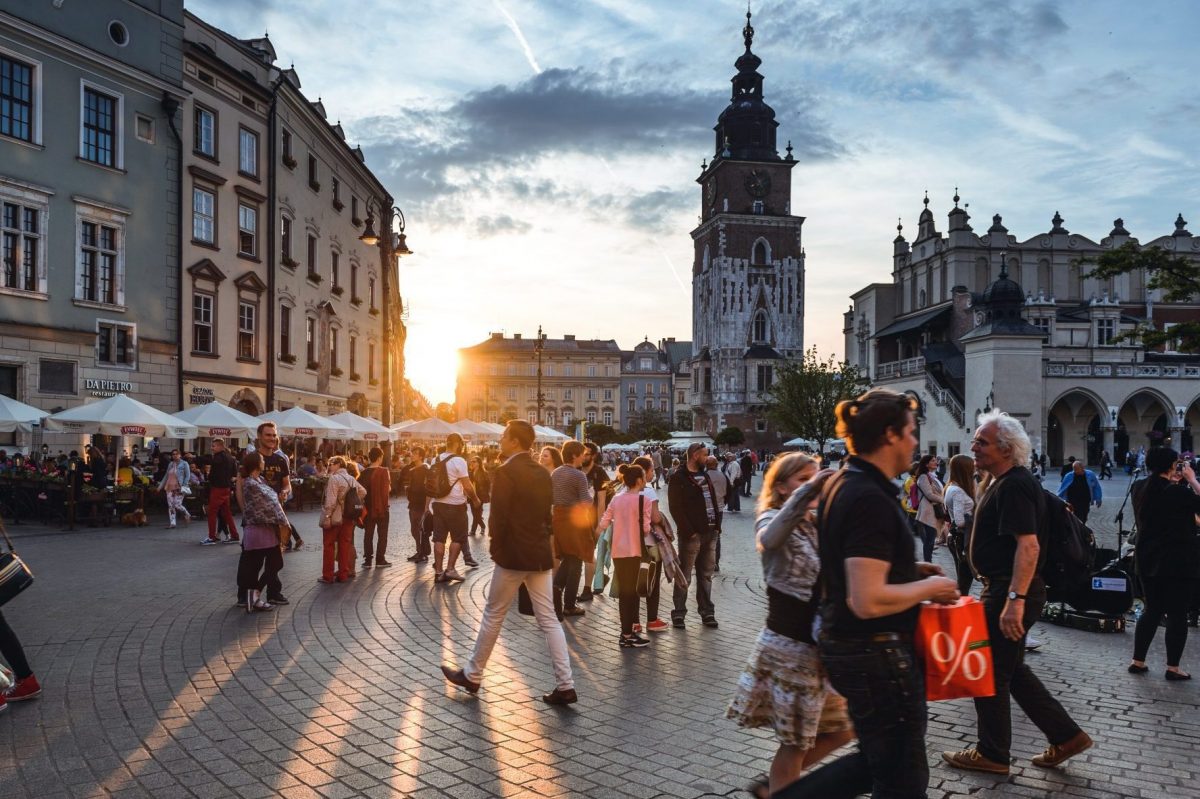Ukraine's Neighbors Still Attracting Tourists Despite War Raging Nearby

Skift Take
The ongoing war in Ukraine is not having a dramatic impact on tourism to the countries bordering the conflict. With fears of the conflict spreading weakening, tourists feel comfortable with continuing their trips to the region.
The biggest impact of the conflict on tourism to the region came in late February, when Russia invaded Ukraine with the support of Belarus. “We did see an impact right away from the conflict,” said Globus Chief Marketing Officer Steve Born. In March and April, the tour operator saw a 10 percent slowdown in forward bookings for the region, particularly its cruises in the Eastern Danube.
There was general uncertainty about how far the conflict would spread and its impact on demand. “When the war started, we didn’t know what impact it would have on neighboring countries,” said Explore Worldwide Director Sam White.
Travelers changed their plans to go to countries closer to home like Western Europe or North America or simply moved their bookings for a later date. Globus saw a 15 percent gain in 2023 early bookings for the region, according to Born. “It didn’t turn off the valve of new demand, it just shifted it,” he said.
“When the war broke out in February, we saw that people's confidence dropped drastically,” The Polish Tourism Organization said in a statement.
Heading into the summer, fear about the conflict spilling over lessened. In May, 54 percent of American travelers said they were worried about the conflict spreading to other parts of Europe, a drop from 62 percent in March, according to MMGY Travel Intelligence’s recent survey.
The U.S. State Department’s travel advisories currently warns U.S. citizens to exercise normal precautions when visiting Hungary, Romania, Slovakia and Poland with no mention of the conflict.
Only Belarus and Moldova have received heightened danger travel warnings. U.S. citizens are advised to not travel to Belarus due “arbitrary enforcement of laws, the risk of detention, the Russian military attack on neighboring Ukraine, and the buildup of Russian military in Belarus along the border with Ukraine.” In the case of Moldova, U.S. travelers are warned to reconsider travel due to the conflict, ongoing refugee crisis and the fact that the country remains in a state of emergency.
Europeans have not been deterred. Only 10 percent of Europeans changed their travel plans to avoid countries neighboring the conflict zone, according to a recent European Travel Commission survey of 6,000 respondents with trips scheduled in the next six months.
“As the war came into the fifth month, people have learned that Poland is safe as ever, all tourist attractions, hotels and restaurants operate as usual, and their confidence has happily restored,” The Polish National Tourist Office said. While group tourism to Poland is still negatively impacted, individual visitations have continued in “great numbers,” according to the organization.
In some countries, the conflict has not taken away optimism for a strong recovery. “The local authorities and hospitality industry are eagerly anticipating a strong tourism recovery, in 2022, following the easing of Covid-19 restrictions, “according to Romania Tourism’s website.
If anything, higher airfares and poor airport operations are likely having a stronger impact. “When I look at the numbers for Eastern Europe, they are not higher than what we are seeing in other destinations, but they are not off skewed from what we are seeing for long haul destinations,” said G Adventures Vice President of Product Yves Marceau. “I think higher airfares and air fiascos are having a bigger impact than anything else.”
To be sure, industry stakeholders are working to reassure travelers that their destinations are safe. This summer, The Poland Tourism Organization launched a #PolandVibes social media campaign, part of which aims to reassure tourists of the country's safety.
The flow of tourism to and within the region is not as smooth as it once was. Travel agencies and tour operators have suspended multi-country trips that include the warring countries—Russia, Ukraine, Belarus. “Where we’ve had trips that are multicounty like for both Russia and Poland, for example, we’ve had to cancel trips that go to both,” White said.
In some countries, there’s been an increased tightness on the use of public services. “The amount of traffic on rail and public transportation has definitely increased in those countries,” said Marceau. “We’re hearing from our staff on the ground it’s a lot of refugees trying to come away from the border or relocate to within the country.”
Tour operators have had to adjust transportation offerings. “We had one trip where we made the decision to move from an overnight train to a private transfer overnight in Romania,” said Marceau. “Part of the reason was the demand for cabins was so high we struggled to get sleeper cars for passengers.”




